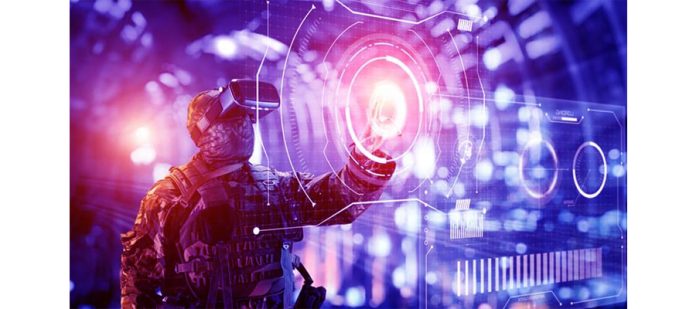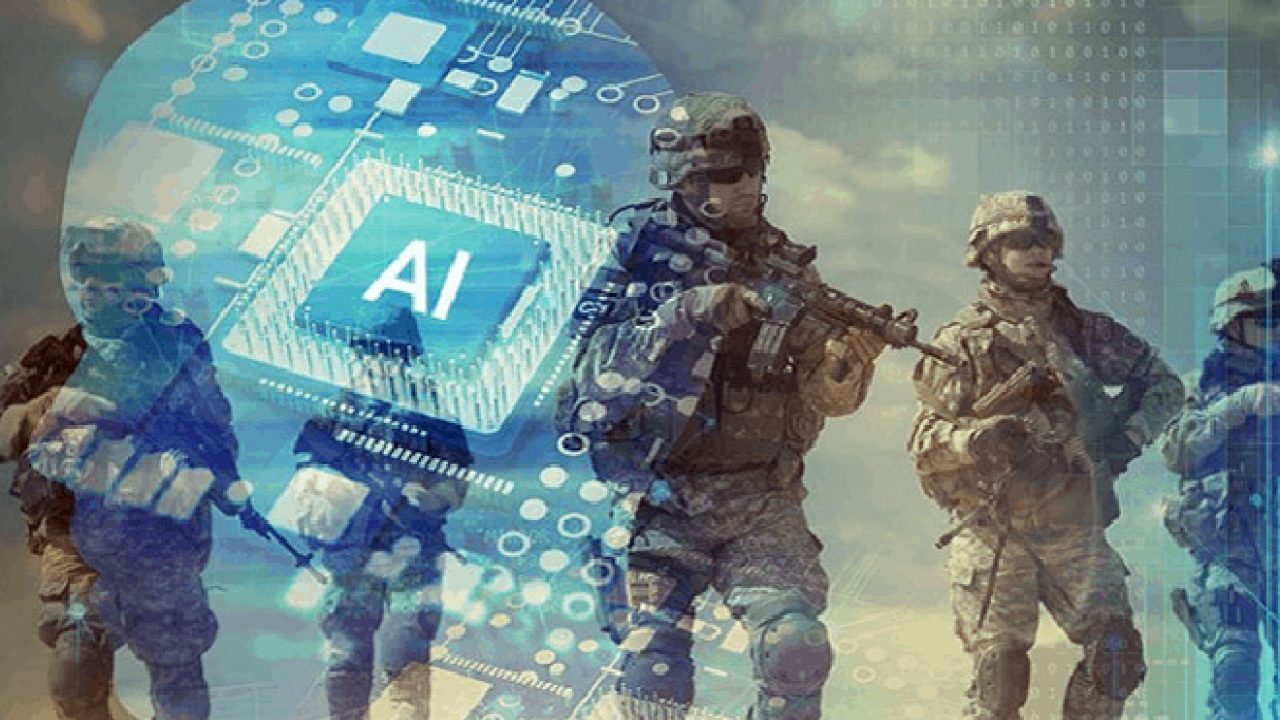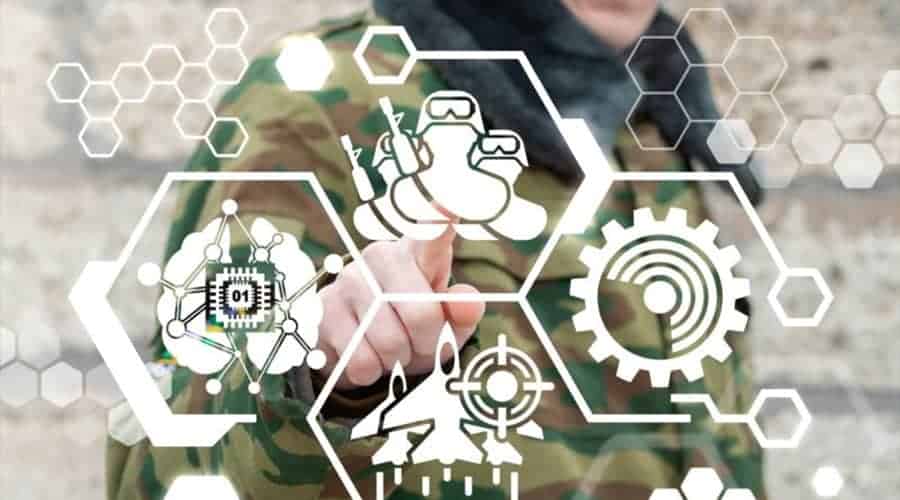Artificial Intelligence in Defence Technology
As the Nation is expanding with innovations and modern technologies, it has become important to stay on guard constantly for any type of threats, risks, and attacks erupting externally and internally. Therefore, the major part of the nation’s budget is using for Defence purposes.
The defence forces of a nation rely on advanced weaponry and ammunition to ensure their preparedness, vigilance, and awareness at all times. Thus, Technology plays a crucial role in simplifying various tasks of the defence forces, enabling rapid and effective development of defence technology. Innovative ideas in this field contribute to maintaining the forces’ highest level of readiness and efficiency.
What is Defence Technology?
Defence technology is using of technology for various military purposes or for fighting wars. Some of them include certain types that are defensive or military in nature. AI in Defence is mostly meant for military purposes but are also been used for Civilian purposes. These technologies in the military are specially researched and developed by professionals and scientists.
AI in Military
Step into the world of technology where AI can be assigned as a leading responsibility in military operations and warfare. The progress of new technologies such as AI will bring new scope to the defence sector by improving the potential of fighting a war or developing the performance of military units.
Nations worldwide incorporating AI to enhance defence forces’ performance:
- Usage of deep learning machines that requires Big Data and Artificial Neutral Networks.
- Developing teamwork between humans and machines where AI-powered machines assist humans in taking correct and appropriate warfare decisions.
- Usage of AI devices that decreases the workload of any operation or assignment being handed over.
- Bringing all the unmanned and manned systems together for various kinds of combat between machines and humans.
AI in Military Market
According to the CAGR of 33.3% from 2023 to 2028, AI in the military market was estimated at around USD 9.2 billion in 2023 and will be going to reach USD 38.8 billion by 2028. With the improved adoption of intelligent unmanned vehicles and increasing threats of cyber-attacks, the market growth of AI in the military experiences major growth.
The Growth OF AI:
- High R&D investment
- New product
- Services launch
- New collaboration, partnership, and agreements.
AI: Changing the Face of Defence Technologies
AI has changed many the industries such as aircraft, nuclear weapons and computers are now all set to change the face of defence technologies. To achieve the accurate goal, the foremost step is to collect data. These data are collected from defence vehicles, ships and aircraft. It can also be collected through physical defence workouts or training, war games and digital simulation.
After collecting the data, it has been put into the AI System for further processing and bifurcating. At last, ready to use.
Hence, AI has become important to ensure the security of the future. AI is becoming essential for a nation to shape defence technologies in all parameters.
AI In Defence Sector
Defence Sector has a very important role in protecting the Nation from threats, enemies, attackers and more. The military of the country is responsible for protecting the country’s wall and it has only been done by strengthening its defence system.
Every country designed and developed weapons. Test nuclear weapons and improve the accuracy in prefer to be perfect at the time warfare. But the question arises, how can the defence sector can improve warfare tactics?
AI in Defence sector is responsible for strengthening the pillar of defence. Here are some of the major uses of AI in Defence:
- Automation Tanks and IoT.
- Usage of Drone Services.
- Recognition of Targets.
- Development of Warfare.
- Controlling of Spies.
- Optimization of Logistics.
Merits and De-merits of AI in Defence:
There is numerous application used in the military sector that offers more productivity in less time. Here are some of the merits and demerits of AI in Defence:
Merits:
Advanced threat Sensing: According to U.S. Army, AI could reduce risks. The process is called aided threat recognition and this has been done by mobile corporative and Autonomous Sensors.
These technologies will aware of the threats faster and give bits of advice to tackle them.
Decrease Human Labor: Many industries such as manufacturing and agriculture use AI to decrease human intervention.
Preparation: Trading is an integral part of Military experience. With AI, the chances of outdated textbooks learners are replaced with modern technological instruments such as tablets and new gadgets.
Increase Cyber-security: AI-powered cyber-security options that safeguard soldiers and communication networks in the case of major power cuts.
Demerits:
Cost of Implementation: Setting up AI machines and Computers requires huge costs. The astronomical expenses don’t stop there as repair and maintenance requires thousands of dollars. Also, AI-based software requires frequent upgrades to serve the requirements of the changing environment for better results.
Low decision factor: Machines cannot decide the definition between right and wrong. Hence incapable of understanding the concept of ethical or legal.
No Creativity: AI can be designed as a Structure but is not designed for creative pieces of Work. Hence, AI lacks creativity like humans.
AI in Defence Companies:
Some prominent companies are bringing AI into the Military Market. Some of them are mentioned below:
Lockheed Martin Corporation (US)
One of the leading companies in the AI in the military market has manufactured a variety of equipment and solution for the sector. Advanced Development Programs (ADP) organization (The subsidiary of the company), also known as Skunk Works which focuses on developing artificial intelligence solutions. The company is developing trusted AI technologies to help humans maximize safety, and situational awareness across land, sea, air, space, cyber, and electromagnetic spectrum domains.
Raytheon Technologies Corporation (US)
Other leading companies are providing products for defence, civil government, and cyber security applications. The company applies AI and machine learning to solutions in areas of predictive equipment maintenance, language classification of handwriting, and automatic target recognition. Thus, increases the intelligence, surveillance, and reconnaissance capabilities of the US and allied armed forces by integrating across ISR capabilities to help warfighters make decisions faster with a reduced workload.
Northrop Grumman Corporation (US)
The company focuses on launching new products, contracts and agreements to enhance its product offerings and increase its market share. The company uses different technologies such as artificial intelligence and machine learning. These will develop systems like autonomous aerial & ground vehicles, intelligent aerial & naval sensors, and in developing virtual assistants to assist in simplifying complex tasks.
BAE Systems PLC (UK)
The US-based company is the key supplier of AI in the military sector of the US. Being the world’s second-largest defence contractor, the company have been inventing, evolving, and implementing world-class autonomous solutions for over 25 years.
The company works on pioneering data fusion, machine learning, etc.
Thales Group (France)
The company manufactures, markets, and sells electronic equipment and systems for the aeronautics, naval, and defence sectors. Developing AI systems as per environments, the company offers a weapons platform called Rapid-fire for fixed point defence, which it claims utilizes target recognition software to govern airspace and appropriately determine whether a target is hostile or not using machine vision.
To conclude,
AI has covered many sectors such as finance, and healthcare and many of the nations have been utilizing it to develop defence technology. AI in defence helps effectively in predictive policing and giving new heights in building powerful defence technologies is picking up the pace.











